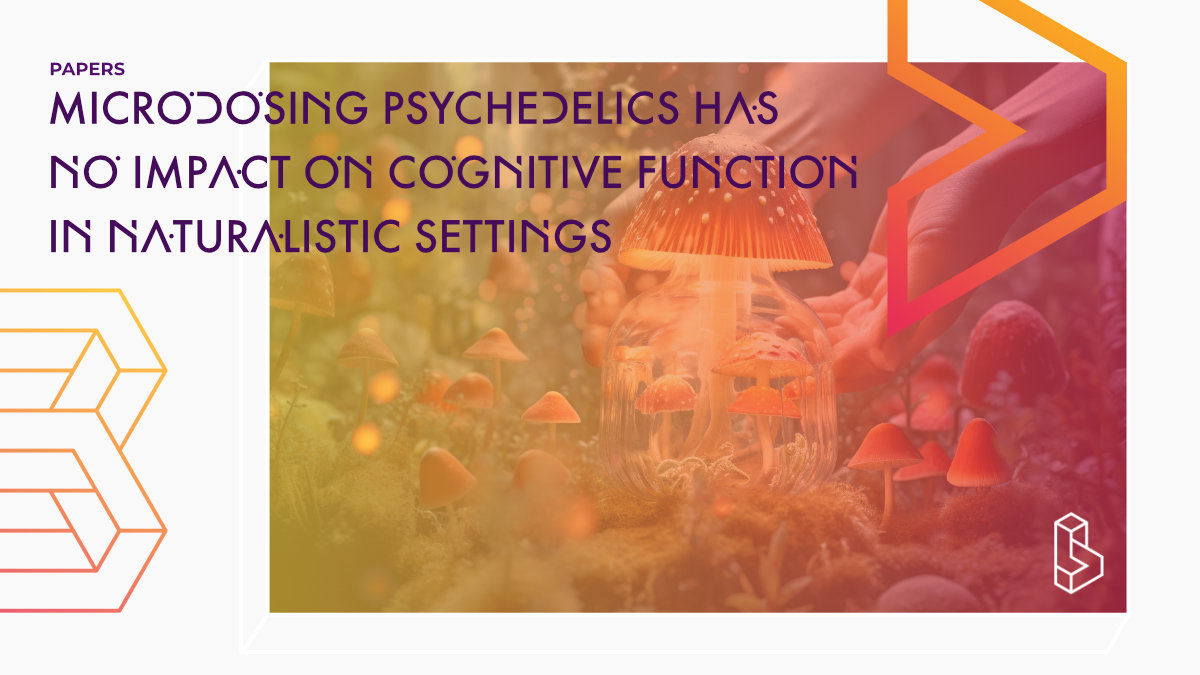This observational within-subjects study (n=17) repeatedly assessed participants during their psychedelic microdosing regimen using the CNSVS neurocognitive battery in a naturalistic setting. Results indicate that neither the day of microdosing nor the day after showed significant links to enhanced or diminished performance across various cognitive functions. The study concludes that microdosing psychedelics might influence psychological pathways rather than neurocognitive ones, leading to a subjective feeling of performance enhancement.
Abstract of Microdosing psychedelics has no impact on cognitive function in naturalistic settings
“Background and aim: Subjective and anecdotal accounts link ingestion of psychedelic microdoses, quantities small enough to retain perceptual clarity, to enhanced cognitive function and performance. In this study we review current evidence, test the link between domains of cognitive function and microdosing psychedelics and evaluate a remote testing approach for cognitive function.
Methods: In an observational within-subjects design, we repeatedly assessed 17 participants during their microdosing regimen using the CNSVS neurocognitive battery in a naturalistic setting.
Results: We found that neither the day of microdosing, nor the day after microdosing are significantly linked to enhanced or diminished performance on processing speed, sustained attention, inhibitory control, set shifting, working memory, visual memory and verbal memory.
Conclusion: Microdosing psychedelics may act on psychological rather than neurocognitive pathways to induce a subjective feeling of performance enhancement. The use of remote cognitive batteries might benefit longitudinal cross-cultural studies by reducing participant burden.”
Authors: Jannis Dinkelacker & Ioana Pop
Summary of Microdosing psychedelics has no impact on cognitive function in naturalistic settings
Psychedelics such as psilocybin and LSD are currently proposed and tested for clinical applications to treat autism, Alzheimer’s disease, substance use, mood, and trauma-related disorders. Microdosing is a recent trend among people aiming to enhance their cognitive, emotional, and social functioning irrespective of levels of psychopathology.
While anecdotal accounts of enhanced cognitive effects after microdosing are abundant, evidence regarding the efficacy of microdoses to enhance cognitive function are scarce and mixed. This study will briefly review current literature and test the relationship between microdosing and several neurocognitive domains.
Find this paper
Microdosing psychedelics has no impact on cognitive function in naturalistic settings
https://doi.org/10.15406/jpcpy.2023.14.00738
Open Access | Google Scholar | Backup | 🕊
Cite this paper (APA)
Dinkelacker, J., & Pop, I. (2023). Microdosing psychedelics has no impact on cognitive function in naturalistic settings. Journal of Psychology & Clinical Psychiatry, 14(4).

